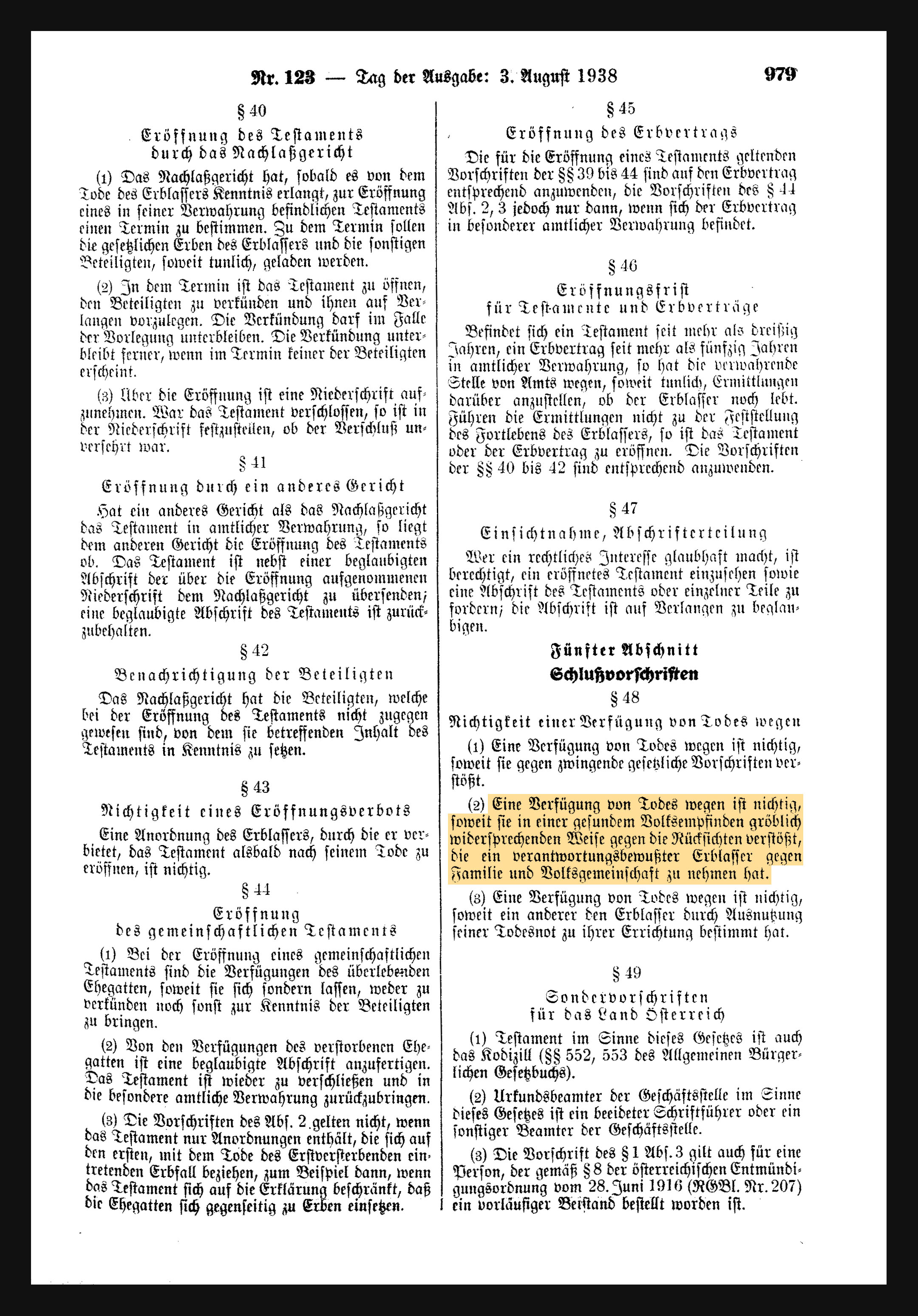Out of respect for the “Volksgemeinschaft”
New law outlaws bequests to Jews

-

“§ 48 A disposition on grounds of death is null and void if it violates healthy public sentiment in a manner grossly contradicting the respect which a responsible testator must exhibit towards family and ethnic community.”
Berlin
With the Enabling Act (Ermächtigungsgesetz) of March 24, 1933, the newly installed government of Adolf Hitler left little doubt about how it viewed the rule of law. The act allowed the government to suspend the constitution whenever it saw fit, to formulate laws and decrees without the involvement of parliament, and even to create treaties between Germany and other countries without parliamentary consent or compliance with the constitution. The arbitrariness and randomness of the legal system this created were intensified by the frequent evocation of the Gesundes Volksempfinden (“healthy popular sentiment”), a term that implied that the people’s putatively uncorrupted, natural instincts should be the basis of Germany’s jurisprudence. One such case was the “Law on the Creation of Testaments and Contracts of Inheritance” (§48) of July 31. Invoking “the needs of the Volksgemeinschaft“—code for racially conceived German national community—the law invalidated contracts through which a deceased person’s property was bequeathed to a Jew.













































